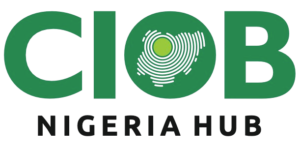
Built Environment Professionals and Stakeholders Biggest Challenges in Circular Economy in Nigeria
Circular economy is the other name of World Economic Forum’s mission, “Eliminating waste and promoting the safe use of natural resources
Circular economy is an inclusive process which aims to redesign and redevelop the idea of traditional “take-make-dispose” approach.
It ensures natural resources are used at the optimum capacity, all at the rate of continuous recycling and better usage of resources through innovative economic business models. Circular economy as a concept aims to deliver efficiency across all the verticals of an economy.
For instance, raw materials produced by a food factory often involve materials that cannot be reused. Circular flow economy aims to generate recyclable materials which are viable for usage not only in the present, but also in the future.
But it doesn’t come easy. There are many obstacles that hinder industries from adopting circular economy in their business plans.
Biggest challenges in circular economy that industries should look at in 2025.
challenges in implementing Circular Economy
- Lack of efficient recycling technologies
- Plastics that enter the ocean, thanks to humans, has destructive effects across the biodiversity chain. Bioaccumulation is increasing with each passing year. Oxygen deprivation is causing deaths for many aquatic animals.
- Oil spills are creating havoc not just for marine organisms, but also for birds. Polymers like PET, PPE, etc. have emerged deeply into our daily lives.
- Such wastes require proper attention and management. Organizations are struggling to recycle them since there is no efficient recycling technology. The main reason being each category of waste requires research for a separate potential recycling technology.
- Most start-ups are in nascent stage and are finding it tough to scale up with the rate of material usage. Additionally, start-up scouting for industries is another obstacle in their business models for a successful circular economy innovation.
- Fear of losing recurrent customers
- Conventional norms and emotions of consumers have become the face of developing new products in the market. New market opportunities in packaging industries are heavily dependent on what the end use consumers think of.
- For instance, the packaging of several consumer products is attained with plastics, which can either be disposable or non-disposable. With slight tweak or replacement of such plastic with glass or paper can change the revenue cycle for firms.
- Consumers are reluctant to adapt to the change due to changes in weight, aesthetics, etc. Detailed consumer insights and understanding of their requirements from a user perspective is the need of the hour. This requires market analysis that doesn’t follow normal conventional market research.
- Educating the consumer before releasing a new product is beneficial as it ensures consumers are aware of their disposing capacity for sustainable development. This strikes a balance between make and use, making circular economy the theme for future product development.
- No proper implementation of localized regulations
- Eco-friendly waste management is in the center stage of circular economy. And it starts with the bottom vertical of an economy- local governance.
- They play a vital role in accelerating circular economy, as they manage local infrastructure and services. Local governance and regulations are easy to implement and becomes a prime are for sustainable development.
- Circular economy requires proper involvement and contribution to make it a success. It cuts across the biodiversity, hence impacting all the industries directly or indirectly.
- However, with increasing disparity in the usage of natural raw materials, local governments are failing to strictly implement localized regulations. Laws are made easier, or loopholes are found to extract natural resources at an alarming rate.
- No proper understanding of emerging business models
- Reuse being one of the key concepts of circular economy, it has not been applied in many industries. To boost the circular economy in industries like fashion/textile, consumers are still unsure about ownership and show reluctance to reuse the clothes.
- Traditional stereotypes of used materials being ‘dirty’ impacts circular economy more than ever before. With emerging influencer industry, textile and fashion industry has seen a tremendous growth.
- But there has not been proper education and awareness of the reusability of clothes.
- Industries are failing in conducting a market analysis for new & emerging trends and opportunities. Old business models of “profit-profit-profit” does not seem viable. We are in a give, take, reuse, and recycle stage.
- A lot of research is being undertaken to find compostable or biodegradable clothing materials.
- Companies should perform detailed market analysis to have a clear understanding of different business models emerging and the way consumers are interacting the changes.
- High investment costs
- Current supply chain infrastructure is not well-equipped with the idea of recycling and hence are not environmentally friendly. Many segments of the industrial market require change in how products reach the potential customer.
- For instance, a piece of personal care material say face wash are usually in containers made of plastics. Most consumers throw away the container, which then ends up in some landfills.
- Organizations are emerging who recycle the plastics and make circular economy a reality. But majority of firms are reluctant to tie up with such organizations to reuse their own products for creating new products.
- This is mainly due to high investment costs. It is easier for industries to create a new product, then to recycle and reuse old ones as it doesn’t impact their revenue streams.
- But this needs to change, there will only be a limited number of resources left to make new products after a certain time. Recycled products will become the new normal in the industrial supply chain.
Case Study: How Toray Industries are incorporating a sustainable technology in their path to carbon neutrality by 2050
As part of the group’s drive to become Carbon Neutral by 2050, Japan based Toray industries has recently developed world’s first 100% bio-based adipic acid from sugars derived from inedible biomass.
Toray has employed microbial fermentation and membrane-based purification to obtain adipic acid (precursor of Nylon 66). Nylon 66 is majorly used in sectors like QSR (Flexible Food packaging), Healthcare industry (surgical sutures, IV fluid bags and medical packaging).
Adipic acid with Hexamethylene diamine is used to produce thermoplastic called Nylon 66. The present pathway of producing Nylon 66 using bio-based adipic acid is eco-friendlier as this leads to the elimination of the greenhouse gas (N2O- Dinitrogen Monoxide) which is produced during the conventional synthesis of adipic acid.
Being a thermoplastic, Nylon 66 can be recyclable- and thus it has less water, carbon footprint compared to conventional fossil fuel-based Nylon 66.
Structured Market Strategy, Backed with Data is the Key
Data and its importance have only grown in the past few years. And with the advancement of technology, this has been made faster and efficient.
Mining information for understanding consumer and their behaviors is easy with artificial intelligence. And Idea poke has just the right product for better revenue generation for the right customer base.
AI research assistant the World’s Most Intelligent Business Research Engine, made for professional business analysis. It is backed with AI-powered data sourcing that brings together millions of information, organizes them into easy-to-read reports.
Many Fortune 500 companies are currently relying on company search research tools to get a detailed analysis of their market size, partners, start-ups, and technology landscapes.
It doesn’t stop here. AI research assistant enhances the ability to beat any competitor by giving research output at superhuman speed to give research outputs with relevant information in minutes.
Circular economy is the future and to be future-ready, organizations require much more than just traditional manual market landscapes. Research Assistant ensures each industry is equipped with different types of business models for better targeted marketing.
JOIN CIOB NIGERIA HUB at https://www.ciobnigeriahub.org
For more information or to explore how CIOB NIGERIA HUB can support your profession and businesses, please contact our team: info@ciobnigeriahub.org or call +2347064420135


